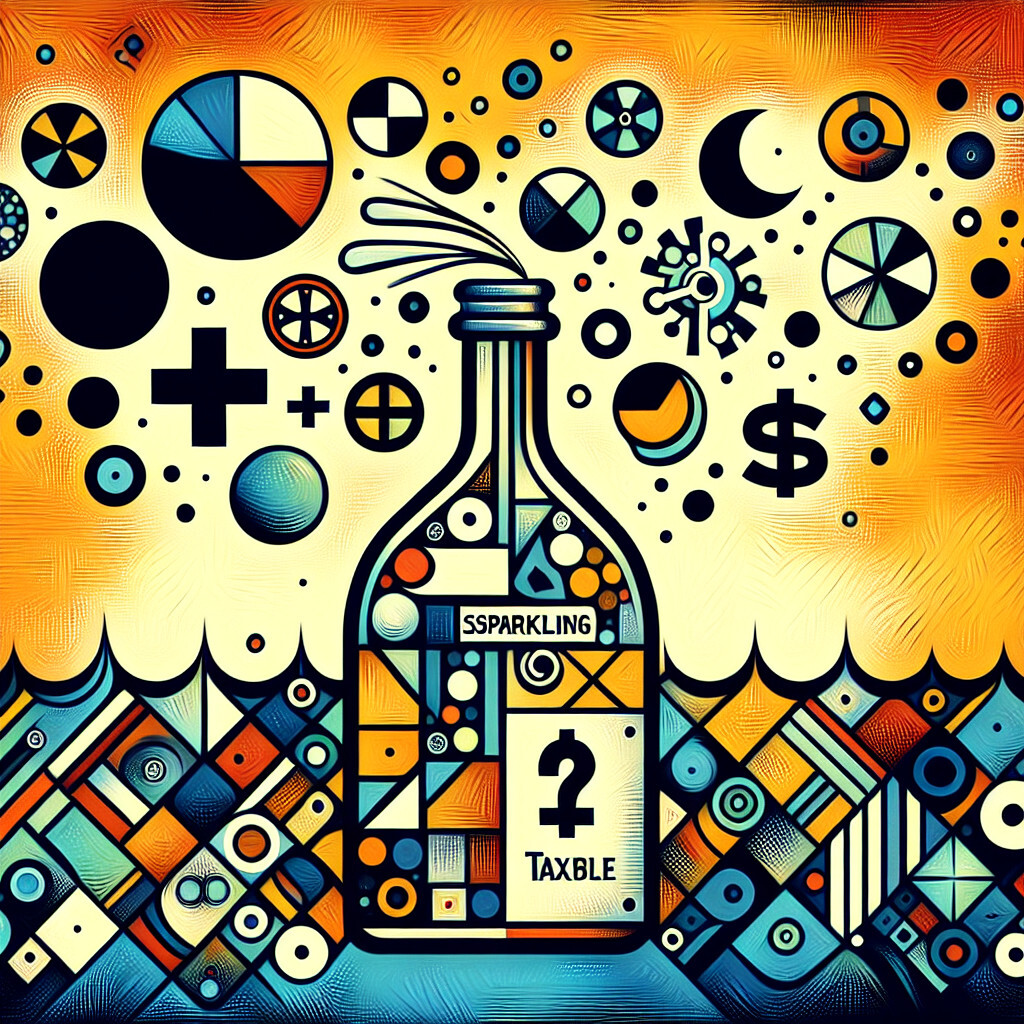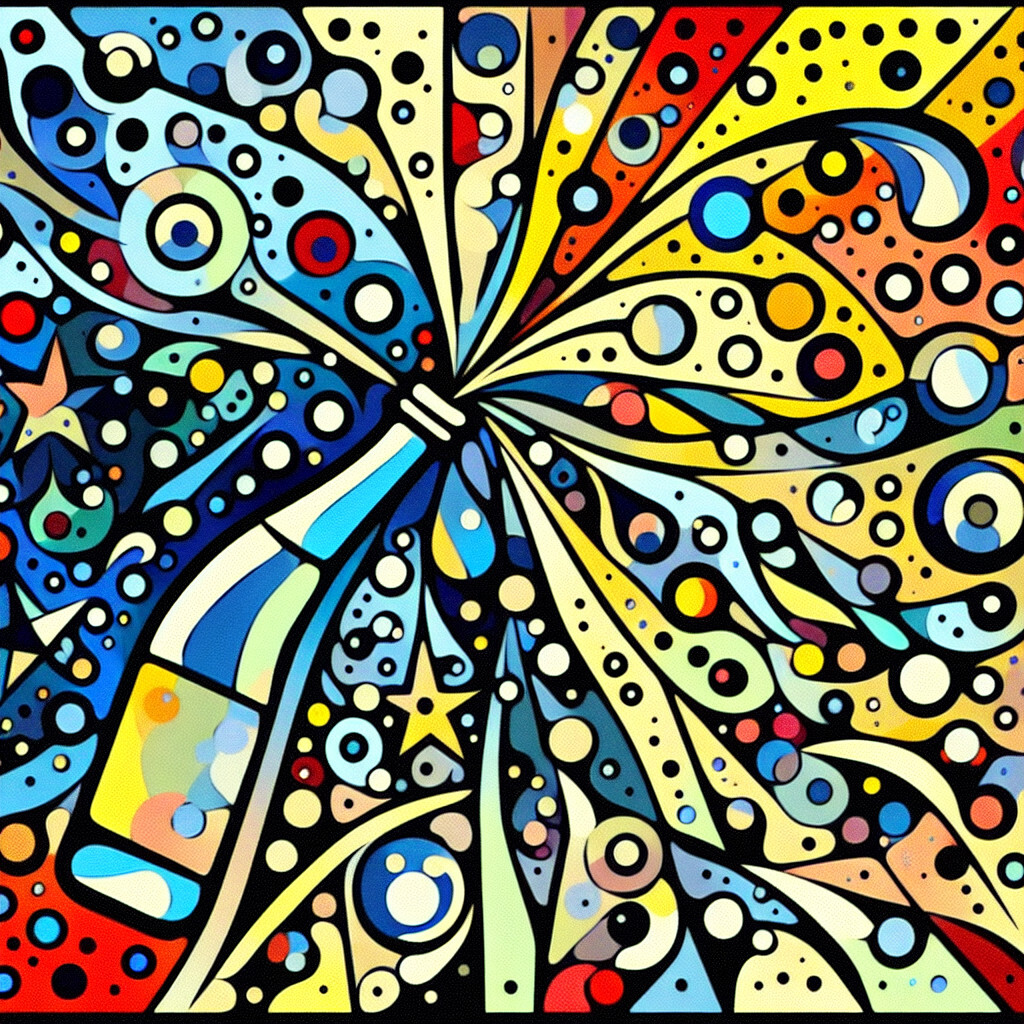-
Table of Contents
“Sparkling Water: Refreshing Taste, Taxable Item”
Introduction

Sparkling water, a popular beverage choice, falls under the category of goods that may be subject to sales tax, depending on the specific tax laws of a particular jurisdiction. The taxation of sparkling water can vary from one location to another, with some places considering it a taxable luxury item, while others classify it as a basic necessity, exempt from tax. It’s important to note that tax laws are subject to change and can be influenced by factors such as the presence of added sugars or flavors in the sparkling water.
Understanding the Tax Implications of Sparkling Water
Understanding the tax implications of sparkling water can be a complex issue, as it often depends on the specific regulations of a given jurisdiction. In many places, the taxation of sparkling water is not as straightforward as it might seem. This is due to the fact that tax laws often categorize beverages differently, and the classification of a product can significantly impact its tax status.
In general, most jurisdictions do not levy taxes on basic necessities, which typically include food and water. However, the classification of sparkling water can be a point of contention. While it is essentially water, it is also a carbonated beverage, which places it in a different category in the eyes of tax law. In some jurisdictions, carbonated beverages are considered luxury or non-essential items and are therefore subject to sales tax.
For instance, in the United States, the tax status of sparkling water can vary from state to state. Some states, like California and Florida, do not tax grocery items, which includes sparkling water. However, other states like Washington and Arkansas, do impose a sales tax on carbonated water. This is because these states classify sparkling water as a soft drink, which is a taxable item.
The situation is further complicated when flavorings or sweeteners are added to the sparkling water. In many jurisdictions, once a beverage is sweetened, it is no longer considered water but a soft drink or other type of beverage. This means that even if sparkling water is not taxed in a certain jurisdiction, a flavored or sweetened version of it might be.
In the European Union, the situation is somewhat different. The EU generally applies a value-added tax (VAT) to most goods and services, but the rate can vary depending on the product. In the case of sparkling water, it is typically subject to the standard VAT rate. However, some member states have reduced rates or exemptions for certain types of water, including sparkling water.
In Canada, basic groceries including water are zero-rated for the Goods and Services Tax (GST). However, if the sparkling water is flavored or sweetened, it is no longer considered a basic grocery item and is subject to the GST.
In conclusion, the tax implications of sparkling water are far from simple and can vary greatly depending on the jurisdiction and the specific characteristics of the product. It is important for both consumers and businesses to be aware of these nuances in order to understand the potential tax implications. As tax laws continue to evolve, it is also crucial to stay informed about any changes that may affect the taxation of beverages like sparkling water.
Is Sparkling Water Subject to Sales Tax?
The question of whether sparkling water is subject to sales tax is one that has been asked by many consumers and retailers alike. This is largely due to the fact that the taxation of food and beverages can be a complex issue, with different rules and regulations applying to different types of products. In this article, we will delve into the specifics of this issue, providing a comprehensive answer to the question: is sparkling water taxable?
To begin with, it is important to understand that the taxation of food and beverages is largely determined by state law in the United States. This means that the tax status of sparkling water can vary from one state to another. However, there are some general principles that can be applied to this issue.
In many states, grocery items are exempt from sales tax. This is based on the idea that food and beverages are essential items, and therefore should not be subject to taxation. However, this exemption often only applies to items that are considered to be staple foods. Staple foods are generally defined as basic food items that are used to prepare meals at home, such as bread, milk, and eggs.
Now, where does sparkling water fit into this picture? In general, water is considered to be a staple food item, and therefore is often exempt from sales tax. This includes both bottled water and tap water. However, the issue becomes more complicated when we consider sparkling water.
Sparkling water is essentially water that has been carbonated, meaning that it has been infused with carbon dioxide gas under pressure. This gives the water its characteristic fizz or sparkle. While sparkling water is still water, it is often considered to be a luxury or non-essential item, rather than a staple food. This is because it is not typically used in the preparation of meals, but is instead consumed as a beverage in its own right.
As a result, in many states, sparkling water is subject to sales tax. This is the case even if the sparkling water is unflavored and contains no added sugars or sweeteners. However, there are some exceptions to this rule. For example, in some states, sparkling water is considered to be a food product and is therefore exempt from sales tax. In other states, the tax status of sparkling water depends on factors such as the size of the container it is sold in, or whether it is sold in a heated state.
In conclusion, the question of whether sparkling water is taxable is not a straightforward one. The answer depends on a variety of factors, including the specific laws and regulations of the state in which the sparkling water is sold. Therefore, if you are a consumer or retailer who is unsure about the tax status of sparkling water, it is advisable to consult with a tax professional or your state’s department of revenue. They will be able to provide you with the most accurate and up-to-date information on this issue.
Exploring the Taxation Policies on Sparkling Water
The taxation policies on sparkling water have been a subject of debate in many jurisdictions, with varying conclusions drawn based on the specific characteristics of the beverage. This article aims to explore the intricacies of these policies, shedding light on the factors that determine whether sparkling water is taxable or not.
To begin with, it is essential to understand that taxation policies differ from one region to another. In some areas, sparkling water is considered a luxury item and is therefore subject to tax. In others, it is classified as a basic necessity, exempting it from taxation. The classification often depends on the perception of sparkling water in the society and the government’s fiscal policies.
In the United States, for instance, the taxability of sparkling water is determined by both federal and state laws. At the federal level, the Internal Revenue Service (IRS) does not impose a specific tax on sparkling water. However, at the state level, the situation can be quite different. Some states impose a sales tax on non-alcoholic beverages, including sparkling water. Others exempt food and beverages from sales tax altogether, while some only tax specific types of beverages, such as those containing sugar or artificial sweeteners.
The taxation of sparkling water in Europe is equally diverse. In the United Kingdom, for example, sparkling water is not subject to Value Added Tax (VAT) as it is considered a necessity. However, in countries like Denmark and Hungary, a tax is imposed on all types of carbonated drinks, including sparkling water.
The taxability of sparkling water can also be influenced by its ingredients. In some jurisdictions, if the sparkling water contains added sugar or artificial sweeteners, it may be classified as a sugary drink and be subject to a sugar tax. This tax is often implemented as a public health measure to discourage the consumption of sugary drinks and combat obesity and other health issues.
Moreover, the packaging of sparkling water can also affect its tax status. In several regions, beverages packaged in environmentally unfriendly materials may attract an environmental tax. This tax is designed to encourage manufacturers to adopt more sustainable packaging methods and consumers to make more environmentally conscious choices.
In conclusion, the taxation of sparkling water is a complex issue that varies widely from one jurisdiction to another. It is influenced by a range of factors, including the classification of the beverage, the ingredients it contains, and the type of packaging used. As such, whether or not sparkling water is taxable in a particular region depends on the specific tax laws and regulations in place. Therefore, it is always advisable for consumers and businesses alike to familiarize themselves with the local tax laws to ensure compliance and avoid any potential penalties.
The Impact of Tax Laws on the Sparkling Water Industry
The impact of tax laws on the sparkling water industry is a topic of considerable interest, particularly in light of the growing popularity of this beverage. As consumers increasingly turn to healthier alternatives to sugary drinks, the sparkling water industry has seen a significant surge in demand. However, the question of whether sparkling water is taxable has become a subject of debate, with implications for both consumers and manufacturers.
In general, tax laws vary widely from one jurisdiction to another, and the taxation of beverages is no exception. In some regions, beverages like soda are subject to a specific tax due to their high sugar content. This is often referred to as a “sugar tax” or “soda tax,” and is intended to discourage consumption of these unhealthy drinks. However, sparkling water, which typically contains no sugar or calories, is often exempt from such taxes.
The rationale behind this exemption is that sparkling water is essentially just water, which is a basic necessity and typically not subject to tax. However, the addition of carbonation complicates this issue. Some argue that the process of carbonation transforms water into a luxury item, which should therefore be taxable. Others maintain that since sparkling water is still fundamentally water and does not contain harmful substances like sugar, it should remain tax-free.
The tax status of sparkling water can have significant implications for the industry. If sparkling water is deemed taxable, this could potentially increase the price of these beverages, which could in turn affect demand. On the other hand, if sparkling water remains tax-free, this could provide a competitive advantage over other beverages that are subject to tax, potentially boosting sales.
Moreover, the tax status of sparkling water can also impact manufacturers. If sparkling water is taxable, manufacturers may need to adjust their pricing strategies to account for the additional cost. This could also affect their profit margins, particularly if consumers are sensitive to price changes. Conversely, if sparkling water is not taxable, manufacturers could potentially benefit from increased demand, as consumers may be more likely to choose tax-free sparkling water over taxable beverages.
In conclusion, the question of whether sparkling water is taxable is not just a matter of legal interpretation, but also has significant implications for the sparkling water industry. The tax status of sparkling water can affect both demand and pricing, with potential impacts on both consumers and manufacturers. As the sparkling water industry continues to grow, it will be interesting to see how tax laws evolve in response to this trend. Regardless of the outcome, it is clear that tax laws play a crucial role in shaping the landscape of the sparkling water industry.
Q&A
1. Question: Is sparkling water taxable in the United States?
Answer: Yes, in some states in the U.S., sparkling water is subject to sales tax.
2. Question: Does the tax rate for sparkling water differ from state to state?
Answer: Yes, the tax rate for sparkling water can vary depending on the state’s tax laws.
3. Question: Is sparkling water considered a luxury item and therefore taxed higher?
Answer: No, sparkling water is not typically considered a luxury item and is not usually taxed at a higher rate.
4. Question: Are there any exceptions where sparkling water might not be taxed?
Answer: Yes, in some states, food and grocery items, including sparkling water, are exempt from sales tax.
Conclusion
The taxability of sparkling water can vary depending on the specific tax laws of a region. In some areas, it may be considered a luxury or non-essential item and therefore subject to sales tax, while in others it may be classified as a grocery item and exempt from tax. It’s important to check local tax regulations to determine if sparkling water is taxable.




